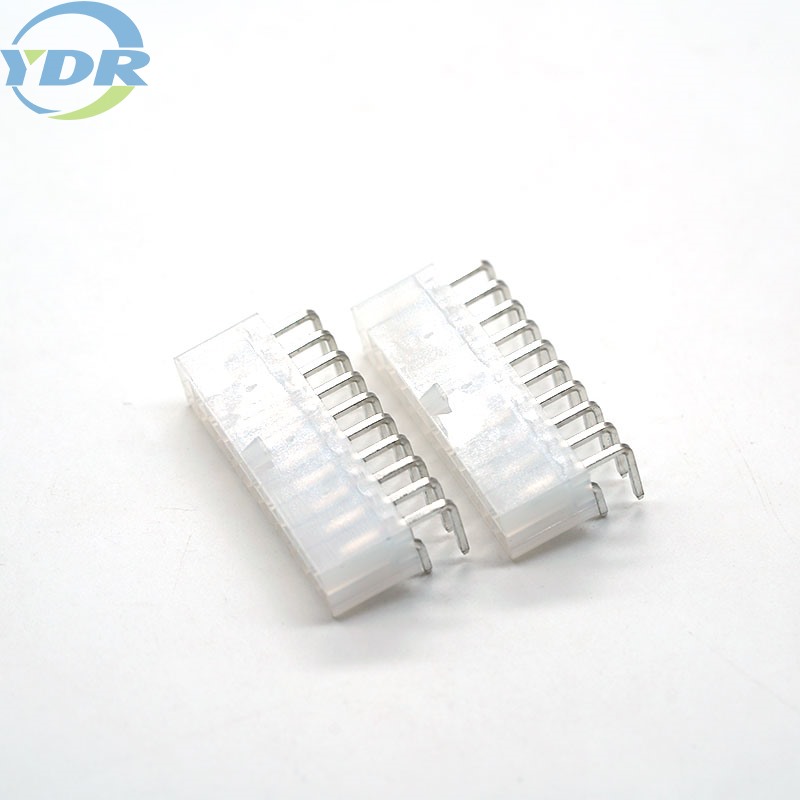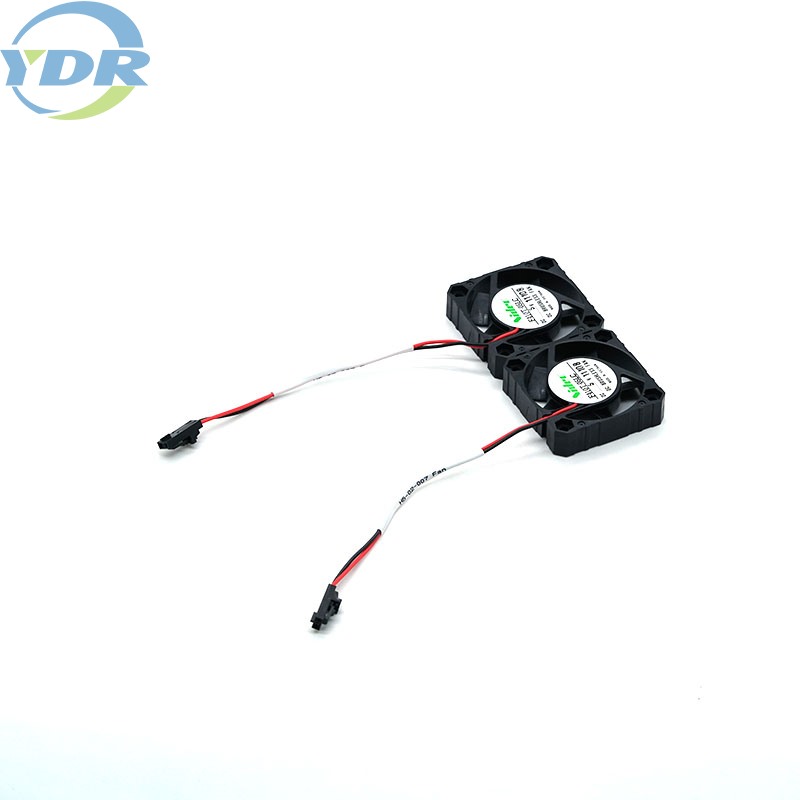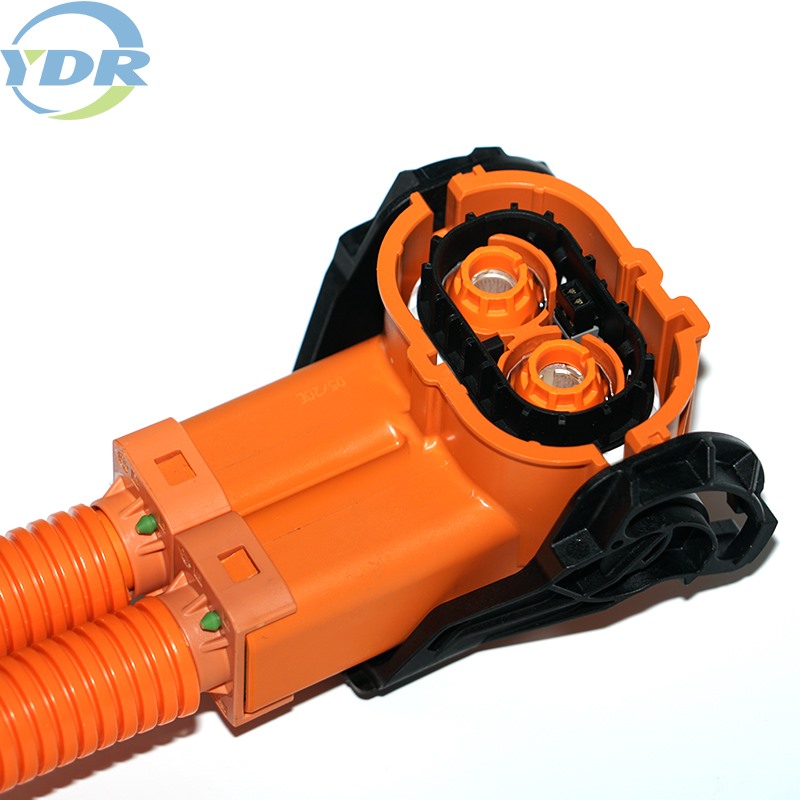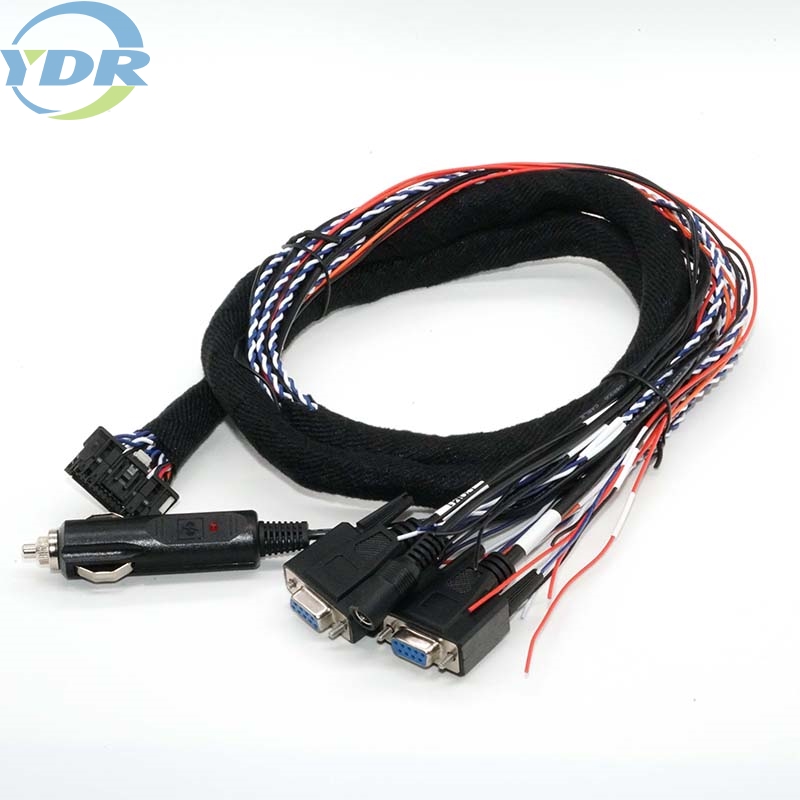What are the advantages of waterproof harness cables

Waterproof harness cables offer several advantages in various applications where protection against water, moisture, and environmental factors is important. These cables are designed to maintain reliable performance even in wet or harsh conditions. Here are some of the advantages of waterproof harness cables:
Moisture Protection: The primary advantage of waterproof harness cables is their ability to effectively resist moisture and water infiltration. This makes them ideal for outdoor and underwater applications where exposure to rain, humidity, or submersion is a concern.
Enhanced Durability: Waterproof cables are constructed using materials that are resistant to degradation caused by moisture, UV radiation, and other environmental factors. This enhances their overall durability and extends their lifespan.
Reliable Performance: Waterproof harness cables are designed to maintain consistent electrical conductivity and signal transmission even in damp or wet conditions. This reliability is crucial in critical applications where disruptions or failures can have serious consequences.
Corrosion Resistance: Many waterproof cables are made from corrosion-resistant materials, such as stainless steel connectors or special coatings, which helps prevent damage caused by chemical exposure or oxidation due to water and moisture.
Versatility: Waterproof harness cables come in various configurations, making them versatile for different applications. They can be customized to meet specific needs in industries like automotive, marine, aerospace, outdoor lighting, and more.
Sealed Connectors: These cables often come with sealed connectors that protect the connection points from water infiltration. This minimizes the risk of short circuits, data loss, or performance degradation due to moisture.
Reduced Maintenance: Waterproof cables require less maintenance and frequent replacements compared to non-waterproof cables in wet environments. This can lead to cost savings and less downtime for maintenance.
Outdoor Use: Waterproof harness cables are particularly suitable for outdoor applications where exposure to rain, snow, and other environmental elements is common. They can be used for lighting, security systems, communication equipment, and more.
Underwater Applications: In underwater environments, such as marine research or submersible vehicles, waterproof cables are essential for maintaining communication, power supply, and data transmission.
Harsh Environments: Beyond just moisture, waterproof harness cables can withstand harsh environments like dusty or sandy conditions, making them valuable in construction, mining, and other industries.
Safety: Waterproof cables contribute to safety by reducing the risk of electrical shocks and failures caused by water entering cable assemblies.
Data Integrity: In applications involving data transmission, such as networking or telecommunications, waterproof cables help ensure data integrity by preventing interference caused by moisture.
Compliance with Regulations: Some industries, such as medical or aerospace, have strict regulations regarding the use of waterproof or moisture-resistant components to ensure reliable performance and safety.
Overall, the advantages of waterproof harness cables lie in their ability to provide reliable connectivity, data transmission, and power distribution even in challenging and wet environments. However, it's important to choose the right type of waterproof cable for your specific application to ensure optimal performance and longevity.

 English
English  Español
Español  Português
Português  русский
русский  Français
Français  日本語
日本語  Deutsch
Deutsch  tiếng Việt
tiếng Việt  Italiano
Italiano  Nederlands
Nederlands  ภาษาไทย
ภาษาไทย  Polski
Polski  한국어
한국어  Svenska
Svenska  magyar
magyar  Malay
Malay  বাংলা ভাষার
বাংলা ভাষার  Dansk
Dansk  Suomi
Suomi  हिन्दी
हिन्दी  Pilipino
Pilipino  Türkçe
Türkçe  Gaeilge
Gaeilge  العربية
العربية  Indonesia
Indonesia  Norsk
Norsk  تمل
تمل  český
český  ελληνικά
ελληνικά  український
український  Javanese
Javanese  فارسی
فارسی  தமிழ்
தமிழ்  తెలుగు
తెలుగు  नेपाली
नेपाली  Burmese
Burmese  български
български  ລາວ
ລາວ  Latine
Latine  Қазақша
Қазақша  Euskal
Euskal  Azərbaycan
Azərbaycan  Slovenský jazyk
Slovenský jazyk  Македонски
Македонски  Lietuvos
Lietuvos  Eesti Keel
Eesti Keel  Română
Română  Slovenski
Slovenski  मराठी
मराठी  Srpski језик
Srpski језик 






